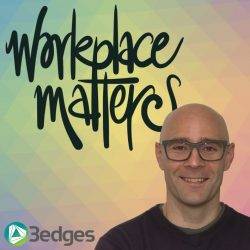June 14, 2017
Job polarisation is being driven by lack of access to technological skills, warns OECD 0
 The employment rate throughout OECD areas is finally returning to pre-crisis levels, but people on low and middle incomes have seen their wages stagnate and share of middle-skilled jobs fall. This is according to the latest OECD Employment Outlook 2017 which finds that the employed share of the population aged 15 to 74 years rose for the third consecutive year, and is expected to reach 61.5 percent by the end of 2018, above its peak of 60.9 percent in the fourth quarter of 2007. Its projections for the UK’s economy for 2017-18 anticipate that growth will ease as rising inflation weighs on real incomes and consumption, but business investment will weaken amidst uncertainty about the United Kingdom’s future trading relations with its partners.
The employment rate throughout OECD areas is finally returning to pre-crisis levels, but people on low and middle incomes have seen their wages stagnate and share of middle-skilled jobs fall. This is according to the latest OECD Employment Outlook 2017 which finds that the employed share of the population aged 15 to 74 years rose for the third consecutive year, and is expected to reach 61.5 percent by the end of 2018, above its peak of 60.9 percent in the fourth quarter of 2007. Its projections for the UK’s economy for 2017-18 anticipate that growth will ease as rising inflation weighs on real incomes and consumption, but business investment will weaken amidst uncertainty about the United Kingdom’s future trading relations with its partners.

















 Less stress and better workplace relationships are the reason why the happiest regions to work in the UK are Yorkshire and the Humber; while uninteresting work is the reason why employees in Scotland and the South are the most unhappy. Research into
Less stress and better workplace relationships are the reason why the happiest regions to work in the UK are Yorkshire and the Humber; while uninteresting work is the reason why employees in Scotland and the South are the most unhappy. Research into 


 If UK businesses are to remain competitive whoever wins the election on 8 June needs to invest in skills and career advice, as Brexit uncertainty means people are hesitating to move jobs, while there may be barriers in future to hiring workers from abroad; according to the latest research into the UK jobs market by the Recruitment & Employment Confederation (REC). The jobs market experienced the steepest drop in candidate availability for 16 months in April while demand for permanent and short-term staff remained high. Although growth in permanent starting salaries edged down to a four-month low in April, it remained sharp overall and stronger than the series average. Meanwhile, hourly pay rates for short-term staff increased at the sharpest pace in 2017 so far. Vacancies continued to rise markedly in April for both permanent and temporary/contract staff. This was despite growth in demand for both types of staff softening slightly since the previous month.
If UK businesses are to remain competitive whoever wins the election on 8 June needs to invest in skills and career advice, as Brexit uncertainty means people are hesitating to move jobs, while there may be barriers in future to hiring workers from abroad; according to the latest research into the UK jobs market by the Recruitment & Employment Confederation (REC). The jobs market experienced the steepest drop in candidate availability for 16 months in April while demand for permanent and short-term staff remained high. Although growth in permanent starting salaries edged down to a four-month low in April, it remained sharp overall and stronger than the series average. Meanwhile, hourly pay rates for short-term staff increased at the sharpest pace in 2017 so far. Vacancies continued to rise markedly in April for both permanent and temporary/contract staff. This was despite growth in demand for both types of staff softening slightly since the previous month.











June 9, 2017
Job satisfaction is high but more focus is needed on employee development 0
by Claire McCartney • Comment, Wellbeing, Workplace
(more…)